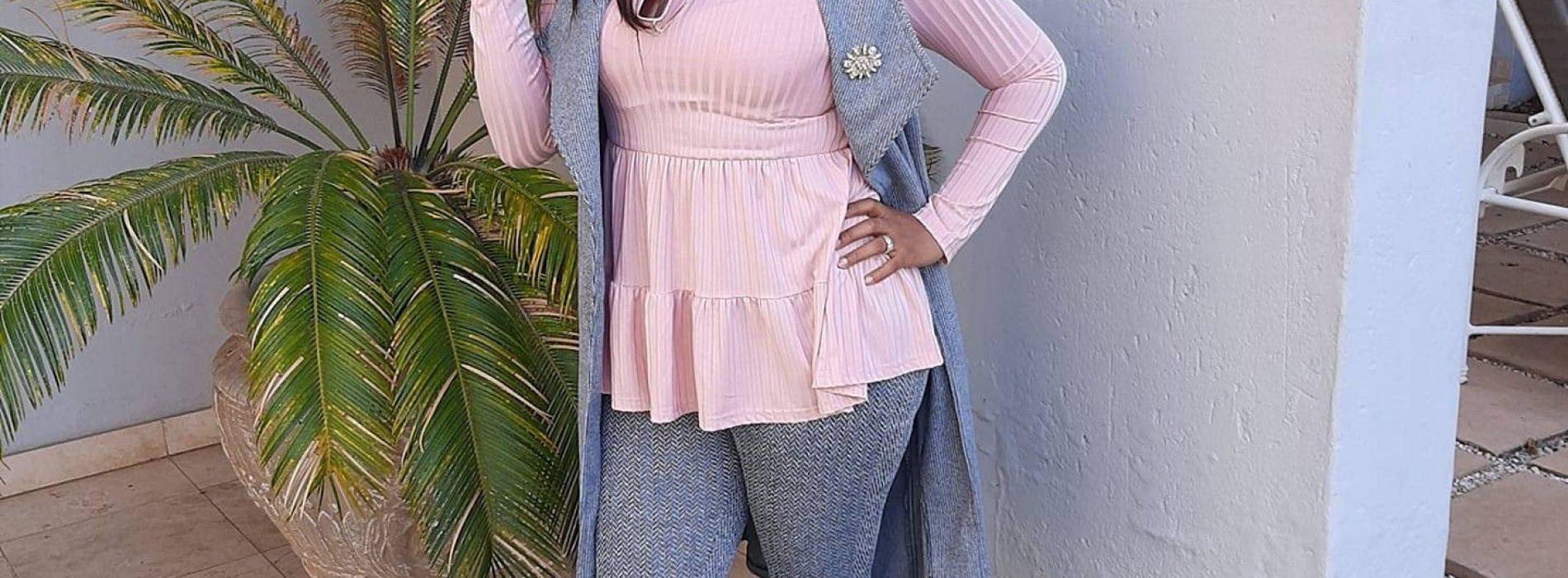Africa-Press – Lesotho. BONOLO Monakedi, popularly known by her TikTok username Mamaentle2, often attracts vile insults from social media users for her content disparaging Basotho domestic workers. But she is not moved, and views her content as a guide on how domestic workers should behave.
Monakedi is a South African woman who has documented a lot of Basotho women working as domestic workers, giving her followers the impression that many of the domestic workers are home wreckers, witches or thieves.
However, her rants against Basotho domestic workers and her labelling them as witches and husband snatchers seems to stem from her own personal experience with a nanny she later expelled.
She says many South African women who hired Lesotho citizens as maids have told her about their husbands ending up falling for the Basotho maids. thepost has talked to Monakedi about the attacks on social media, her personal experience with Basotho maids and stories she heard from other South African women.
Monakedi created her Basotho maids content on her TikTok account in August where she claims they have sex with their employers’ husbands and destroy families using muti.
This did not only enrage Basotho housekeepers but also local Basotho who verbally attacked Monakedi for tarnishing their image. “When I first commenced this movement, many people insulted me, especially on TikTok.
I blocked some, but others came back and apologised and I still kept some of those messages,” Monakedi told thepost. “I recall this lady who insulted me a lot but after mentioning this one on muti usage she responded saying her husband was seeing a Mosotho lady,” she said.
“Her husband physically abused and resented her. I told her how my then nanny used to control me, she finally connected the dots.
”
Monakedi said even though Basotho housekeepers insulted her, it is through that anger that she finally understood “why they behave the way they do when they get in our homes”.
She said many Basotho women posting in the comments section were too confident of their beauty and sexual prowess, adding that they gloat “that they have pulled their labia-minoras and their sex is better than that of South African women”.
Her TikTok account has angered many domestic workers and other concerned Basotho who attacked her through inbox messages and other social media platforms.
“This has caught a lot of people’s concerns but most of the home owners and employees were on my side. Most voice their testimonies when I am live on TikTok because normally when I am live, I invite both the helpers and the employees.
”
In her live discussions, Monakedi said she found that many Basotho maids view South African women as a lazy lot who behave like queens but fail to take care of their husbands. Many said it becomes easy for them to lure husbands into love affairs because they offer care that South African women fail to provide.
She said she also found that Basotho domestic workers work for longer periods in white families than for black families “because they obey their white bosses and never complain about cleaning their bedrooms.
”
“However, when it comes to their black bosses they bring the African cultural norms on how wives should treat their husbands.
”
“This has long been there but we took it lightly.
For instance, I am not an exception to this for I took this for granted since I am a Mosotho and have to stand by my kind, until it happened to me,” Monakedi said.
“Even after it occurred in my house, I was still nonchalant about it but then it hit me hard when I heard similar stories at my work place.
“At my work place there is a diversity of cultures and in my shift I am the only Mosotho.
My colleagues, who are Bapedi, Batswana, Batsonga and others raised this issue and narrated their stories of how their Basotho helpers treat them in their own homes.
”
She said some would approach her and tell her that she caught the helper bathing a child with muti. Another colleague told Monakedi of a tale involving a Mosotho lady she knew from her residential compound.
“So this lady is not a stay-in helper, she works for different families on week days, and in all the local houses she works in during working hours, the men of all those houses come to her.
”
One day Monakedi visited the same colleague and managed to have a word with the domestic worker to confront her about the alleged behavior.
“She just smiled and told me, that if someone asks her to come to her house to sweep, she will sweep everything including the husband because she came to South Africa to work not to be ill-treated by women who think they (domestic workers) do not deserve a good life like they do (madams)”.
“This was when I realised that indeed Basotho women are not hated in South Africa but have made their bed which they now have to lay on”. She saw this as a hot issue and she decided to create a special series of TikTok posts about it.
“Not only did I hear the stories at work but my neighbours and friends also shed tears (when talking about) how Basotho housekeepers destroyed their families.
”
She further claimed that some employment agencies shut down because they were struggling to find jobs for Basotho domestic workers.
“I was talking to one of the agents, and she told me that she had to close the agency because of complaints she received from employers and that no one wanted to work with Basotho maids anymore,” said Monakedi.
Monakedi was born and raised within the Khutlisi family and was married to Monakedi’s family in South Africa. “I was born in South Africa. My father is a Mosotho from Ladybrand and my mother is a Zulu but they migrated to Lesotho in Khubetsoana Ntširele.
I did my primary level in Lesotho but completed Standard Seven and higher educational levels in South Africa,” she said. “Even though I live in South Africa, my life still revolves around Lesotho because my family is still in Lesotho.
” Monakedi said her aim was not to harm the reputation of Basotho women.
“But I felt a need to raise this issue before other women from other cultures raise it. It would be worse than it seems to at the moment if others raise it,” she argued.
She said her mother and other close relatives were domestic workers “hence I clearly understand the importance and value of housekeepers. ”
“My aim is to raise awareness on the need for Basotho house maids to change.
”
She said she used to hear some stories about “disgusting acts” committed by Basotho housemaids, but never took it seriously “until I became a victim.
”
“When I was a teenage girl I would visit home during the December holidays. I used to travel in the same taxi as some housemaids and they would happily share stories of their toxic behaviour,” she said.
She said she took it for granted “until I reached the age where I needed to hire one”. As a Mosotho woman, she felt a need to hire a fellow Mosotho woman thinking that they would understand each other better.
“Basotho women do house chores perfectly and most employers like them for that but their sickening behaviour overshadows the good things they do,” said Monakedi, claiming that her first nanny used muti to control the family.
She claimed she was not aware of it at first until her husband warned her about “some weird smell” coming from the maid’s room. “I defended her because I thought he just hated her due to the myths he heard about Basotho”.
“I realised it was true after we gave her the boot. She was controlling me in my own house and I would do as she demanded. She was imitating everything I did, including my diet,” said Monakedi. Also she remembered having a maid she had good relations with.
“I worked harmoniously with her and I loved her, but when I went home for the holidays she stole the Christmas clothes I had bought for the children and she never came back.
” But she never forgets one woman from Lesotho who worked for her but had to return home due to a family emergency.
“She was one of the best housekeepers I have ever had. She opened my mind. She told me that these women mislead each other when they meet at agencies. They give each other tips on how to behave when they find jobs and even exchange the traditional medicines to use at work,” said Monakedi.
For More News And Analysis About Lesotho Follow Africa-Press






